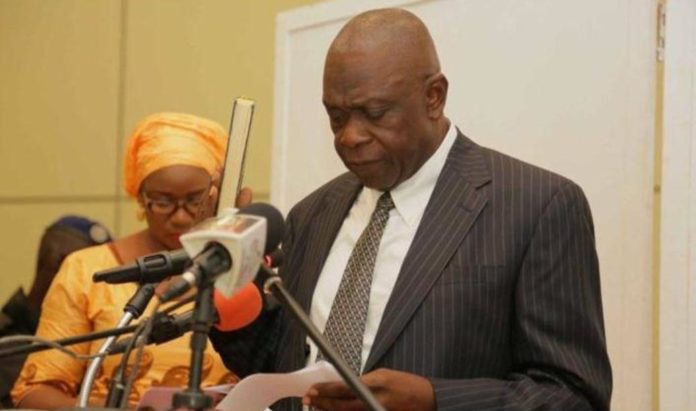By Yankuba Jallow
The Gambia Supreme Court has over the week in the appeal case involving Amadou Sanneh, an ex-Minister of Trade hold that his conviction still stands.
The ex-Minister of Trade was pardoned by President Adama Barrow on 30th January 2017. They said a pardon is an act of forgiveness and nothing more.
“Pardon is no sense the equivalence of an acquittal. The effect of the pardon is prospective and not retrospective. It does not change the past and cannot annihilate the established fact that the Appellant was convicted of the offence. For all intents and purposes, the fact of the conviction remains untouched and the criminal record is not erased,” the judges of the Supreme Court held.
The judges stated that the 1997 Constitution does not give the President the prerogative of justice, but only a prerogative of mercy which, cannot remove a conviction, but, only pardons.
Furthermore, the judges said by virtue of section 120 of the 1997 Constitution, “the judicial power of The Gambia is vested in the courts and shall be exercised by them according to the respective jurisdictions conferred on them by law.”
In their unanimous decision, the judges said: “thus, only the courts with the appellate jurisdictions have the power to quash a conviction. It follows, therefore, that a pardon is not a substitute for judicial reversal of the Appellant’s (Amadou Sanneh’s) conviction.”
The former Minister of Trade Amadou Sanneh, who also doubles as National Treasurer of the United Democratic Party (UDP), was sentenced to five years imprisonment in December 2013, for his role in supporting an asylum application of some Gambians. He was released from prison by a presidential pardon given by current President Adama Barrow. Sanneh, together with Malang Fatty and Sambou Fatty, were convicted and sentenced to five years in jail on two counts relating to sedition. Sanneh was accused of issuing ‘malicious documents’ to facilitate asylum for Malang and Sambou Fatty. He denied the allegation but the then High Court Judge in the person of Justice Emmanuel Nkea, found him guilty and sentenced him to five years in jail.
Whilst serving his sentence, Sanneh was granted presidential pardon by President Adama Barrow and later appointed Minister of Finance and Economic Affairs, before being redeployed to the Ministry of Trade.
On Tuesday, 12th March 2019 Lawyer Rachel Y. Mendy, Counsel for Mr. Sanneh and Counsel M.B. Abubakar in his submission before the panel of judges of the Supreme Court, said a presidential pardon can wipe out both conviction and sentence.
Readers would recall that the Gambia Court of Appeal on November 2nd 2017, ruled on an application brought by Lawyer Ousainou Darboe and 18 others’ on a similar issue.
The lead Judge of the Gambia Court of Appeal Justice Awa Bah in her ruling, said the President in pursuance of his powers vested under Section 82 (1) of 1997 Constitution, granted pardon to the Appellants (Lawyer Darboe and 18 others) on 30th January 2017, by way of Gazette contained in General Notice No. 4/2017 Vol. 134.
In her ruling, she held that the President in the exercise of his Constitutional powers pursuant to Section 82 (1) of the Constitution, could not have reversed the decision of the High Court convicting the Appellants of the offences stated therein.
“That power to reverse their conviction is a judicial power and lies only with the Court,” she said.
She held that the President can only grant pardon to the Appellants and relieve them of all pains or penalties and punishments whatsoever, that the conviction may ensue.
“The grant of the pardon could not wipe out the fact of the conviction of the Appellants, which conviction could not be denied,” she said.

















